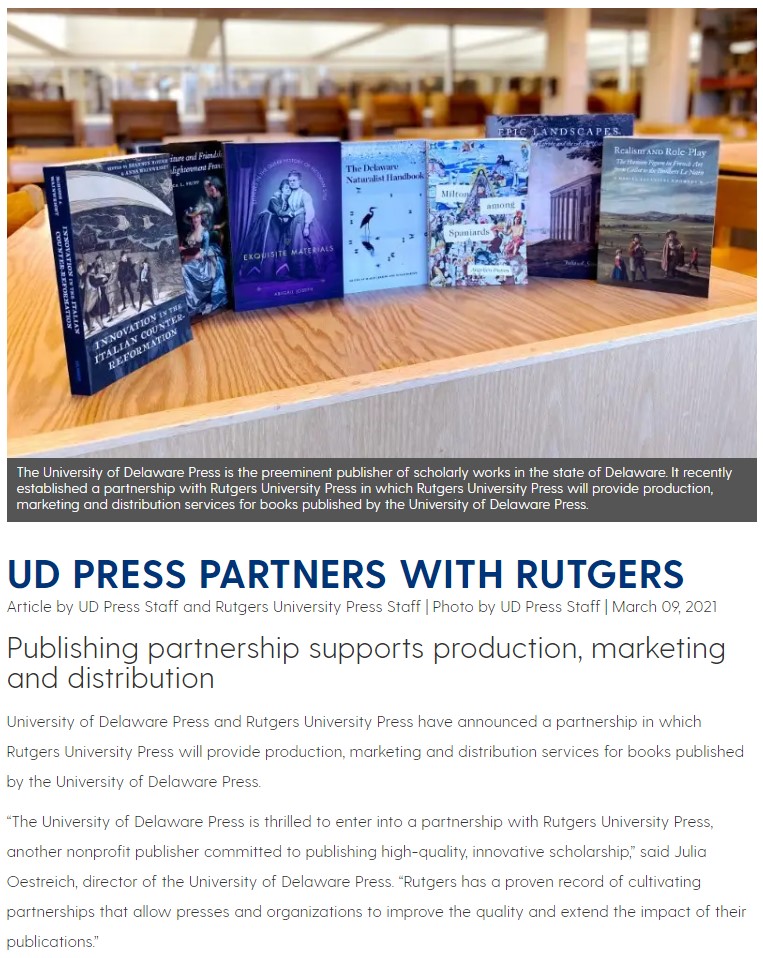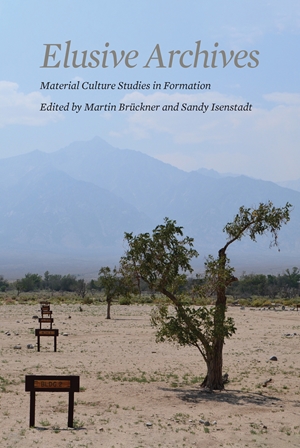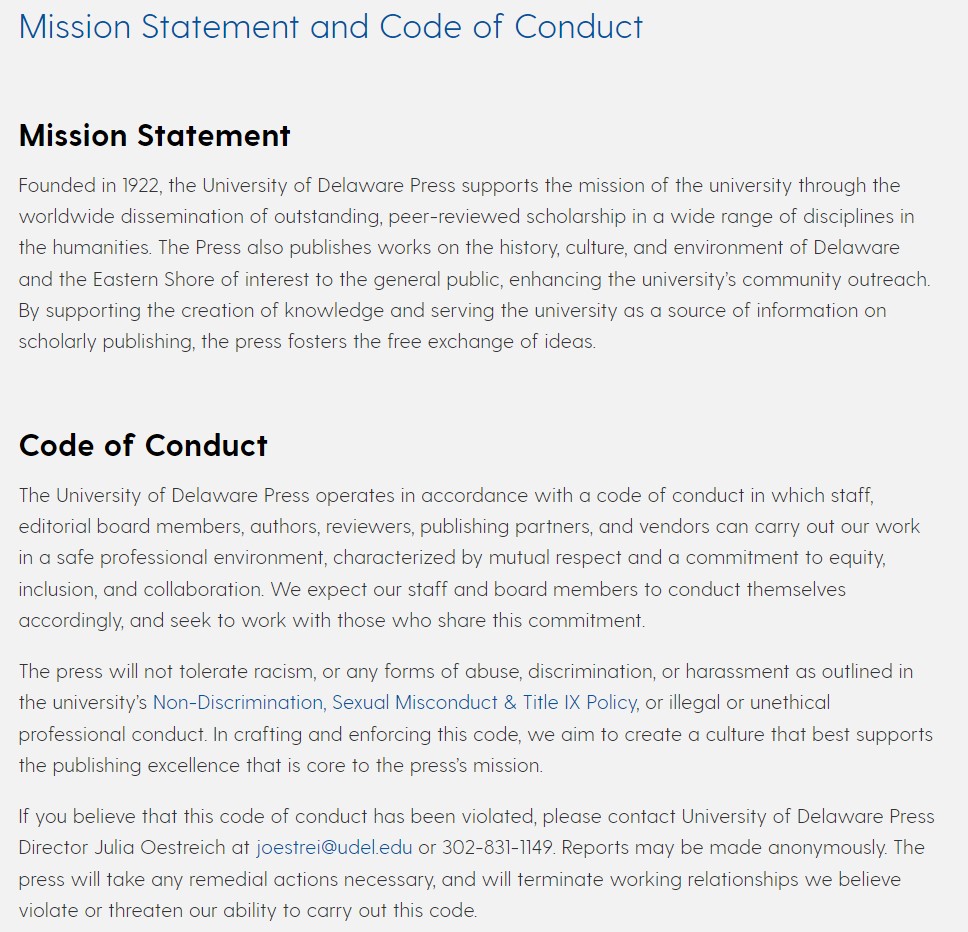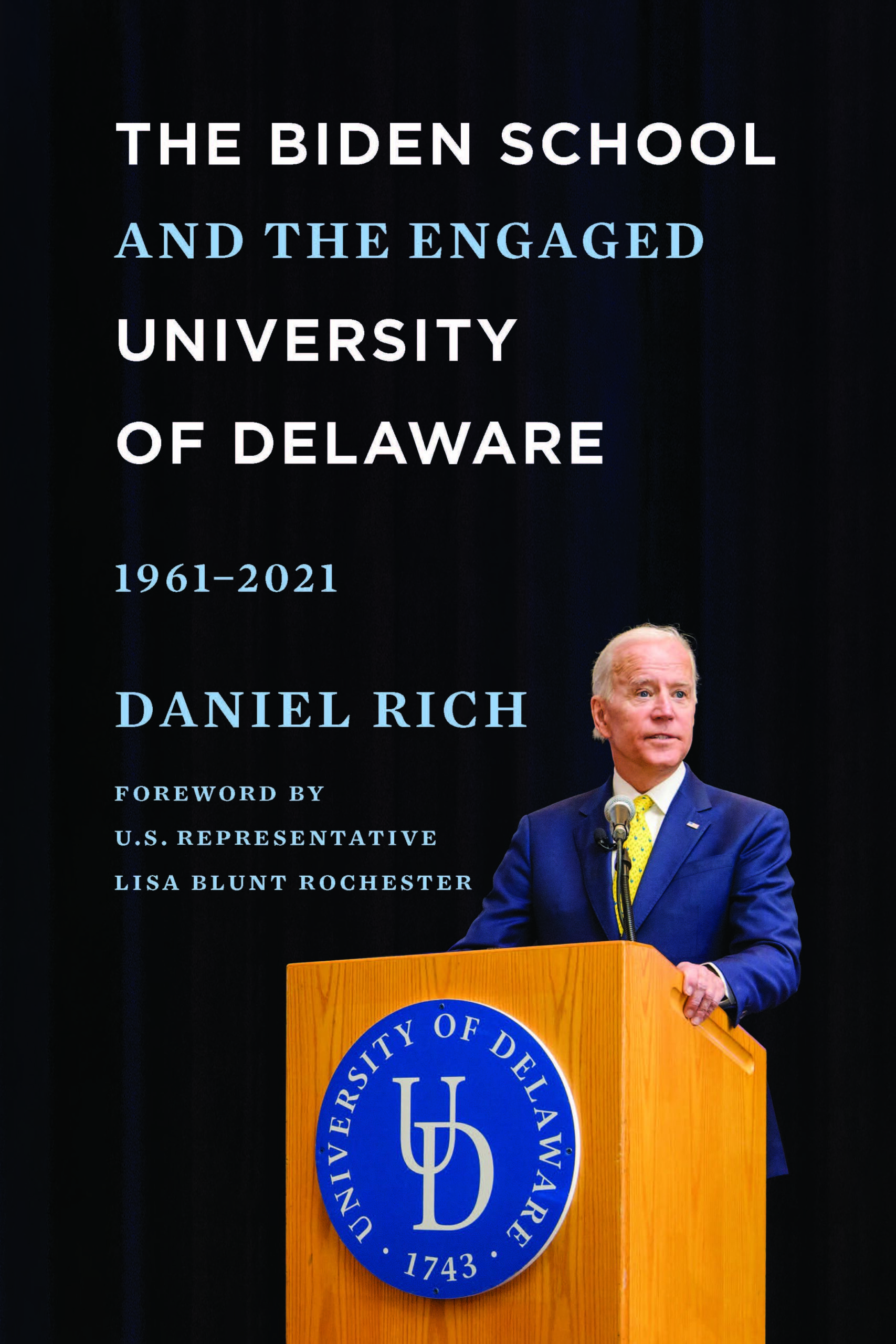When Oestreich became press director, she was the first the publishing professional to run the press, as until then, a faculty board chairman had always overseen operations. She had long been aware of concerns with the Rowman & Littlefield partnership and sought to transition the press to a partnership with another university press. This led to the termination of the agreement with Rowman & Littlefield in 2017, and the start of a brief arrangement with the University of Virginia Press in 2018.
The press then solidified a more permanent relationship with Rutgers University Press starting in February 2021, which entails Rutgers producing, marketing, and distributing Delaware titles. However, unlike in previous arrangements, Delaware continues to be involved in decision-making through the entire workflow for its titles, helping to craft marketing and sales strategy, giving feedback on layout and design, conferring on print runs and book pricing, and providing complementary marketing and editorial support. With UVA and now Rutgers, the University of Delaware Press owns all of its titles and receives a much more significant percentage of income from its book sales than with previous partners.The press has sought to maintain its reputation as a leading publisher in eighteenth-century studies and art history, but its emphasis on innovative, pathbreaking scholarship has led to an embrace of work that is transnational and interdisciplinary. The press has cultivated such work through the maintenance or establishment of series that have raised the press’s profile in early modern/Renaissance studies, material culture studies, and transatlantic studies.
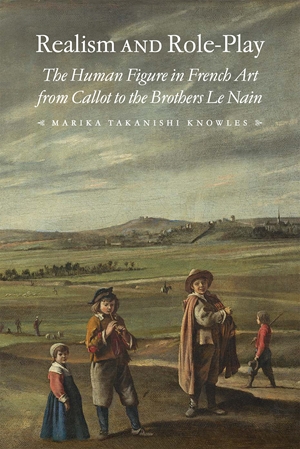
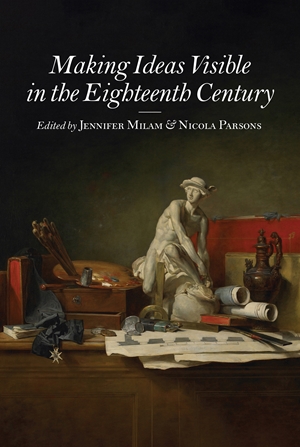
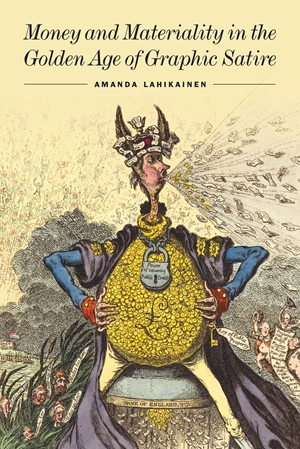


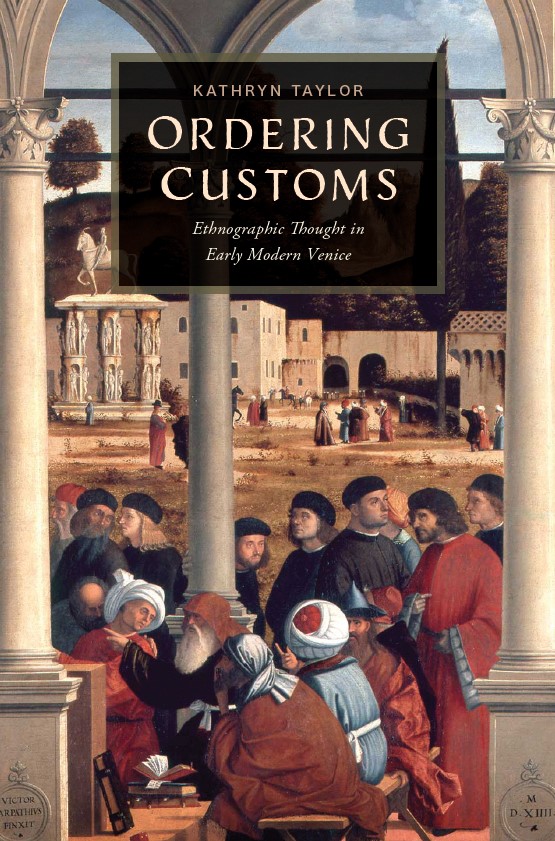
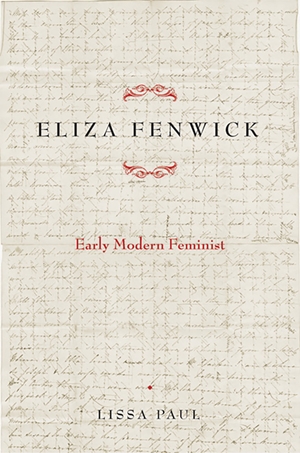
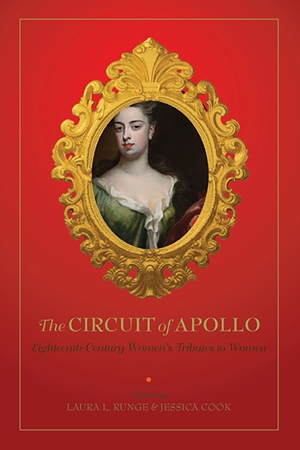
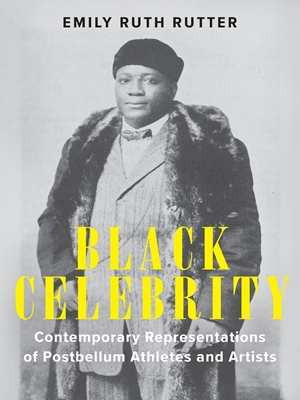
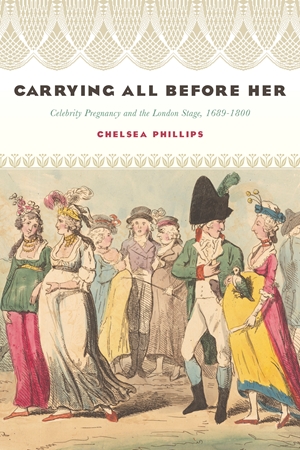
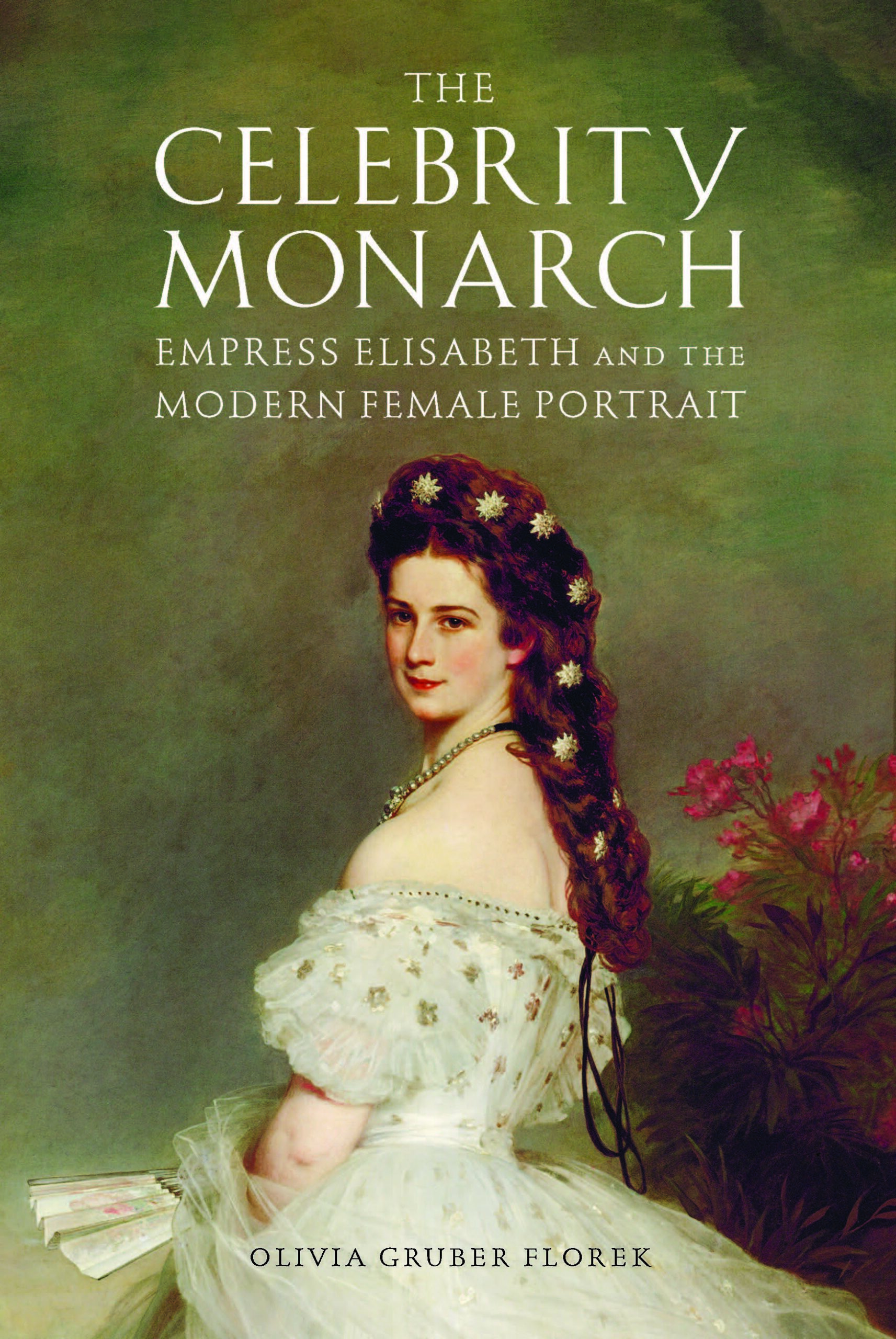
In 2021, the press launched the Material Culture Perspectives series with the publication of Elusive Archives: Material Culture in Formation. Coedited by two University of Delaware professors, Martin Brückner and Sandy Isenstadt, this series solidifies the university’s place as a leader in material culture studies, and as an incubator of innovative and inclusive methodologies.
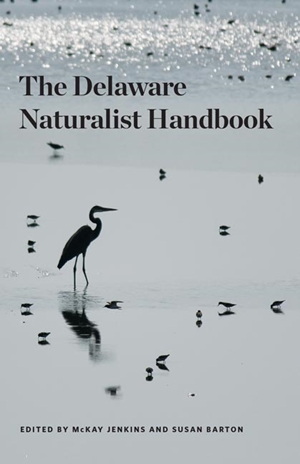

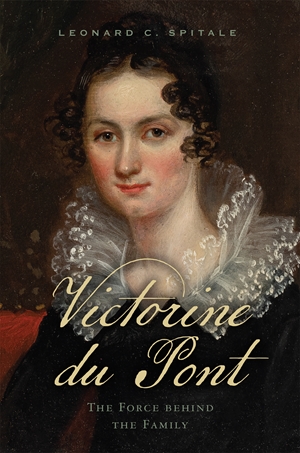
These series welcome work with explicitly contemporary lenses and work that pays particular attention to categories of identity such as gender, race, and sexuality, providing new insights into how the early modern period speaks to the present day. This is in line with the press’s mission statement, which was only officially approved in 2020.
After working with the editorial board to finalize and approve the mission statement, Oestreich then worked with the board to draft a first-ever code of conduct for the press, meant to reflect values of collaboration, equity, and inclusion. All press staff, board members, authors, reviewers, partners, and vendors are expected to abide by this code.
The University of Delaware Press is going through a particularly exciting time in its 100-year history. Its series are thriving, its mission statement and code of conduct have marked a period of increased focus on diversifying its booklist and aligning practices with values of equity and inclusion, and its staff is growing. Perhaps the most exciting development is that, in the spring of 2023, the press will publish its first open access title, The Biden School and the Engaged University of Delaware. Open access books are free and widely available online, so that cost and geography are no longer barriers to high-quality scholarship.
Through fundraising support and a grant from the Mellon Foundation, the press will also be able to publish more open access titles, and begin experimenting with multi-modal publications via the Manifold platform. This will allow the press to publish books supplemented with a range of media and interactive components alongside its more traditional publication. The press will also make a number of classic backlist titles available on an open access basis via the university’s institutional repository UDSpace.
The University of Delaware Press has experienced many ups and downs in its first 100 years, but with the support of university administration, and particularly the Library, Museums and Press, it is poised to grow and take advantage of emerging opportunities in the scholarly publishing landscape.

